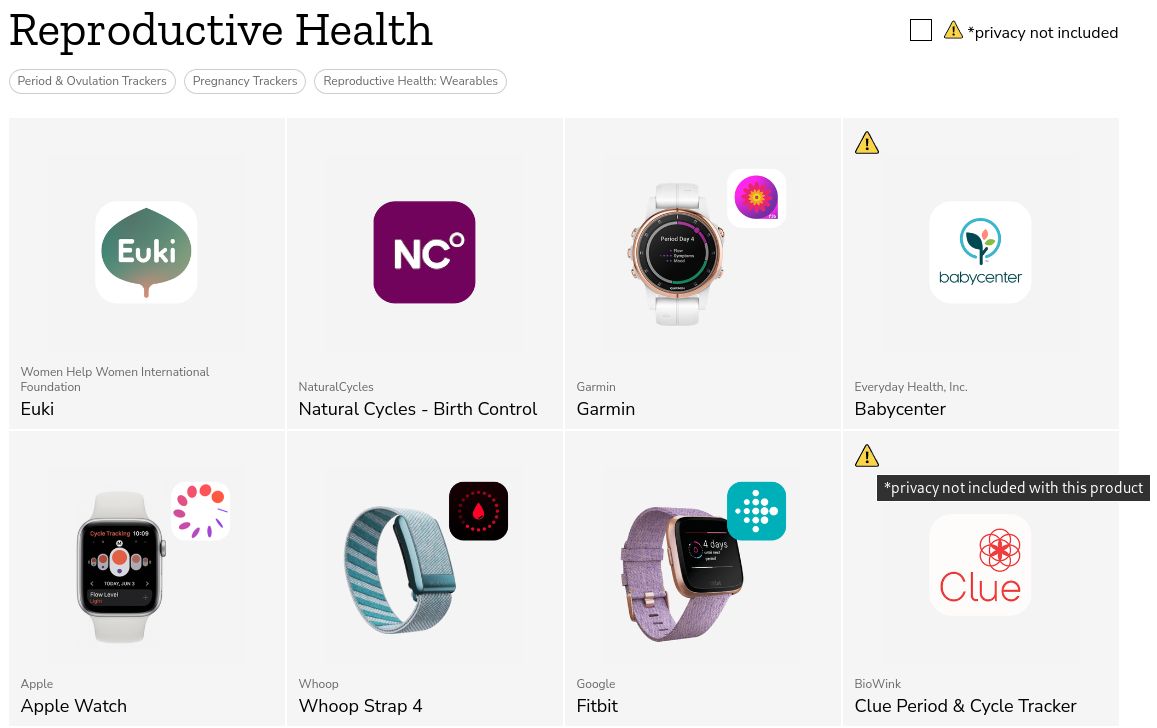The repeal or annulment of the right to abortion in the United States by the Supreme Court It continues to generate, a few months later, quite a bit of controversy in the country. The new legal context, which has returned the power to the states to regulate abortion as they see fit, has raised concerns about the protection of data related to the reproductive life of women, and apparently many companies suspend in this regard according to Mozilla recently denounced.
Researchers from the foundation behind Firefox have analyzed the privacy offered by 25 Most Popular Devices and Apps in the United States for Tracking Reproductive Health. The result can only be considered disappointing if we see that, according to Mozilla, eighteen of them leak user data.
The concern around this issue stems from pregnancy and period tracking apps collecting data that could be used to prosecute people in places where abortion is illegal. In short, most of the twenty-five most popular devices and apps in the United States for tracking women’s reproductive health could give away those who intend or have had abortions where they shouldn’t. Nevertheless, pregnancy and period tracking apps would not be the main snitches, but Google searches and messaging services.

The report is quite graphic, displaying an image of each device in a tile-like layout. If your device or app has a warning in the top left corner, it means it “doesn’t include privacy.” If you want to show only those that do not offer the privacy minimums established by Mozilla, you must click on the “*privacy not included” option to the right of the title. In addition, the user or the user can click on each application or device to see a report with the conclusions of the foundation.
Mozilla’s Jen Caltrider has stated that “Companies that collect personal and sensitive health information must be very vigilant when it comes to the privacy and security of the personal information they collect, especially now in our post-Roe v. Wade world. Unfortunately, many do not they are”.
Many large US corporations have remained silent on the Supreme Court’s decision to strike down or overturn the legal framework established through Roe v. Wade, but some, like Google, have moved to improve the privacy of reproductive health-related data. women.
Finally, this is not the first report of this type that Mozilla publishes, as it has done the same before with mental health applications.














